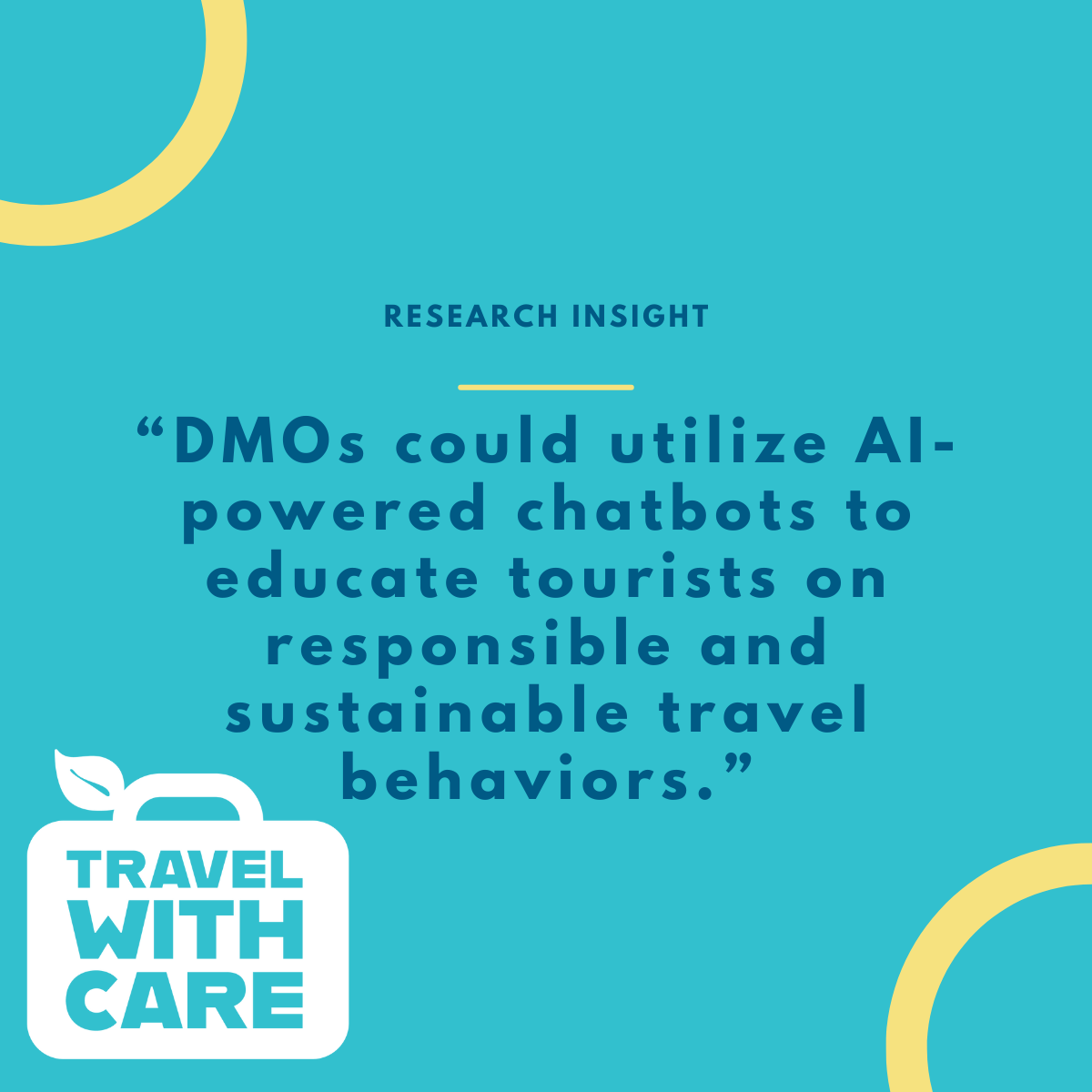
08 Apr Chatbots’ influence on pro-environmental behavior
Everyone can use a nudge in the right direction.
Nudge theory suggests that through educational reminders and suggestions someone can influence a person’s intended behavior. This study by Majid et al. (2024) looks at the potential of chatbots nudging users toward actions that are sustainable. The proposed scale shows how AI technology with conversational capabilities, such as chatbots, can be used to nudge people for pro-social purposes. This study’s pro-social objective was around sustainable travelling practices in a developing country to encourage tourists to visit nature-based destinations.
DMOs could utilize AI-powered chatbots to educate tourists on responsible and sustainable travel behaviors. These AI-powered chatbots could nudge these behaviors and influence tourists’ intended behaviors by encouraging reducing waste, conserving precious resources, and understanding and respecting local cultures. This approach blends new technology and destination stewardship. Not only can adoption of chatbots in tourism enhance a visitor’s experience, it can also help promote more sustainable behaviors in the destination.
The study can be found here.
Majid, G. M., Tussyadiah, I., Kim, Y. R., & Chen, J. L. (2024). Promoting pro-environmental behaviour spillover through chatbots. Journal of Sustainable Tourism, 1–19. https://doi.org/10.1080/09669582.2024.2393256
Written by: Reed Davisson.

